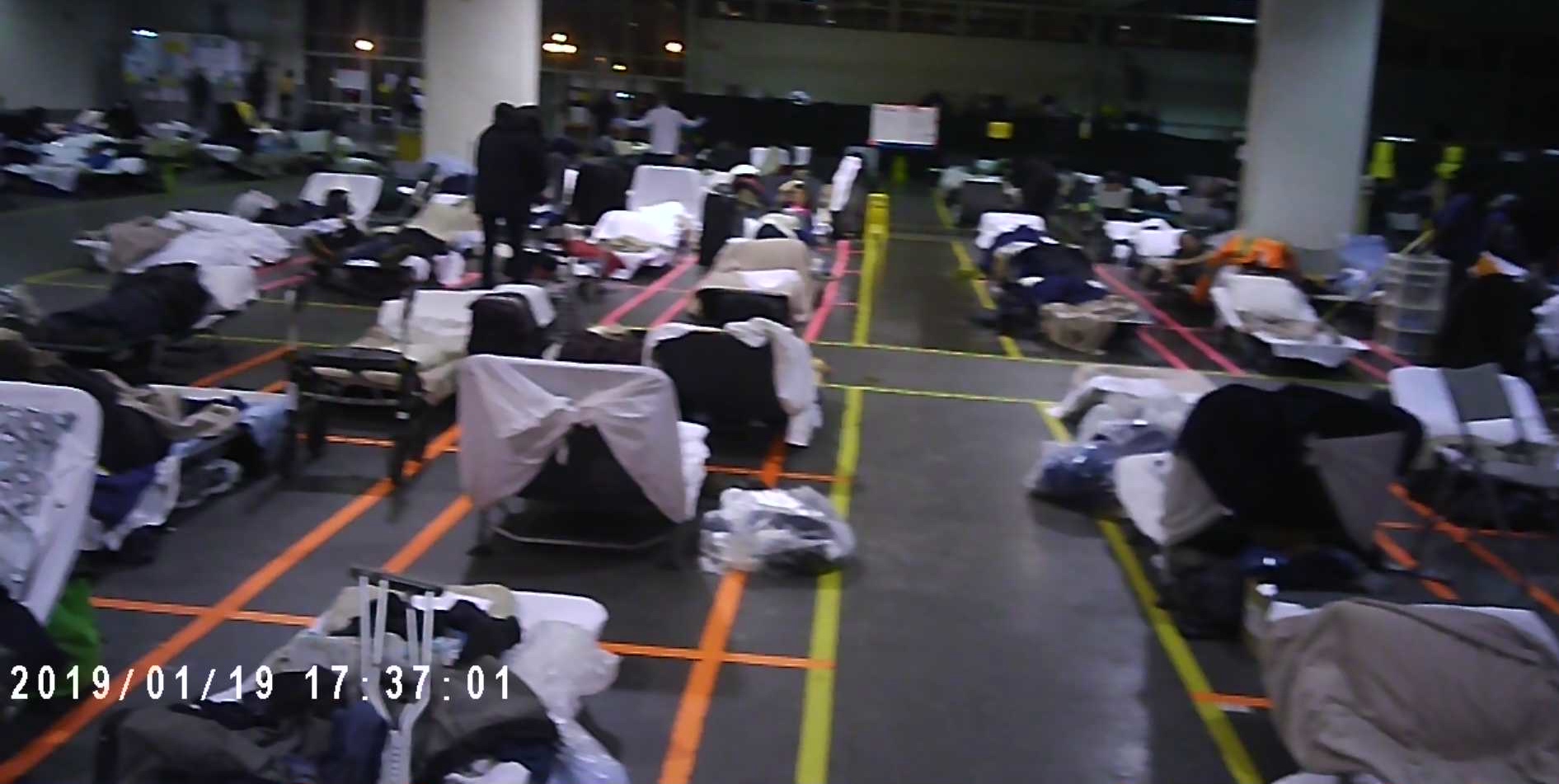In the most recent report by the Leilani Farha, the United Nations Special Rapporteur on adequate housing, we learn that access to justice and legal advocacy is necessary to protect people and to prevent violations of the human right to housing.
Farha, who is also the executive director of Canada Without Poverty, writes:
“Violations of the right to housing are as much failures in the administration of justice as they are failures of housing programs. If those living in inadequate housing and in homelessness have no access to justice, they are deprived of agency to bring violations to light, to address root causes or ensure appropriate responses. They are unable to challenge the policy choices and decisions that created the conditions in which they live.”
That is certainly the case in Toronto, perhaps most evident in the city’s long history of evictions of homeless people in squats, ravines, and parks. Toronto’s most recent such attempt was to evict the people living under the Gardiner Expressway.
The report concludes,
“States cannot hold themselves up as leaders in human rights while leaving increasing numbers of residents to live and die on their streets, with no means to hold their Governments accountable and with no access to effective remedies. The time for excuses, justifications and looking the other way when access to justice is denied for the right to housing has long passed. Rights must have remedies, and Governments must be held accountable to rights holders.”
In Toronto, “rights denied” means:
- Permanent shelters continue to operate beyond a 90 per cent ‘safe’ capacity level.
- As of January 2019, there were 330 people including families with children on the waiting list for shelter.
- There now exists a permanent second tier ‘respite’ shelter system with lower standards that permits conditions not dissimilar to refugee camps. (Note: in February, a woman gave birth in one such site, pictured above).
- Women’s shelters remain full and two overnight drop-ins are now, for the third year, sleeping women on mats on the floor and in a few reclining chairs.
- Hang Vo, a homeless woman who died when she was run over by a garbage truck, was not eligible for social housing.
- Homeless families placed in motels report illnesses that send them to the emergency department. The likely culprit is mould. They appear to have no legal recourse.
- Toronto’s monthly Homeless Memorial in February saw eight names added plus a number of ‘John Does’ from 2018.
How is justice denied in Toronto?
Recently, Toronto City Council voted to reject a motion that would have recognized the city’s homelessness crisis as a municipal emergency. Councilmembers also rejected to affirm housing as a human right and to commit to taking appropriate measures to address homelessness as a human rights crisis. Mayor Tory spoke strongly against declaring a housing and homelessness state of emergency, but on the subject of potholes this past weekend declared, “We will spend what it takes.”
Mayor Tory did not respond to a written request by the Shelter and Housing Justice Network, a new advocacy group in Toronto, to meet, nor did he choose to receive their delegation six days later, even though he was in his office.
Despite formal complaints to the city’s Shelter Division, overcrowding and unsafe conditions continue. People await a response from the Ombudsman office.
The loss of heat at an Out of the Cold location recently resulted in 60 people displaced in the middle of a snowstorm and squeezed into an inadequate shelter system at a variety of locations across the city. No emergency plan was put in place that would have opened a community centre or gymnasium to shelter all 60 displaced people. And yet, people sleeping outside remain at risk for eviction.
Full and complete Toronto Public Health data that could lead to a comprehensive report and recommendations to prevent homeless deaths continues to be withheld. Meanwhile, the only action we see on the federal, provincial, or municipal levels is finger pointing, the biggest debate now being whether Toronto has in fact received even one dollar of National Housing Strategy funds.
In Farha’s conclusion and the way forward, she writes:
“Rampant evictions of those living in informal settlements, disregard of court orders and the rule of law and criminalization of those who are homeless suggest one thing: those whose right to housing has been violated have not been recognized and treated as equal members of the human family. As long as States deny access to justice for the right to housing, they perpetuate a hierarchy of human rights, exposing the discriminatory position that some rights (and thus some rights holders) matter more than others.”
As John Clarke has bluntly pointed out: “The shelter emergency in Toronto at the moment represents a descending scale of human rights denial. People are denied housing and have to turn to a shelter system that represents a form of warehousing of human beings.”
Image: Cathy Crowe
Help make rabble sustainable. Please consider supporting our work with a monthly donation. Support rabble.ca today for as little as $1 per month!





